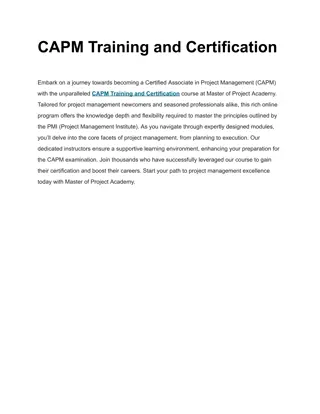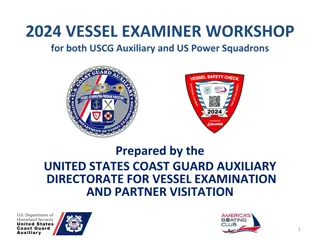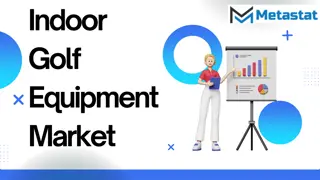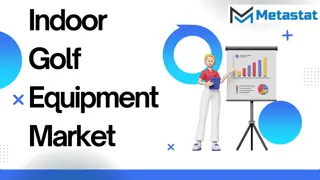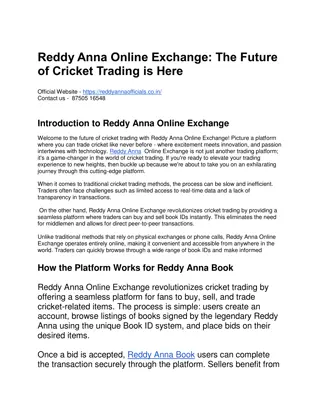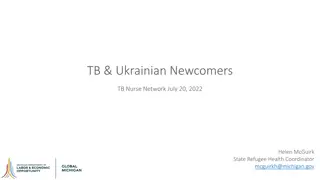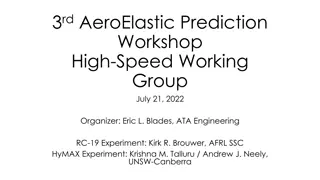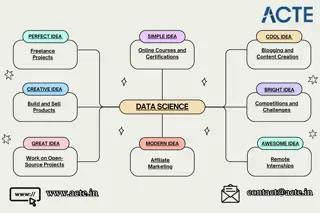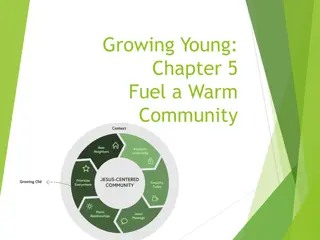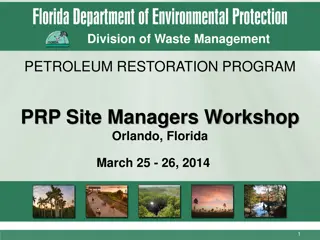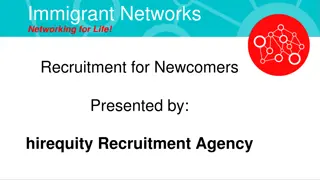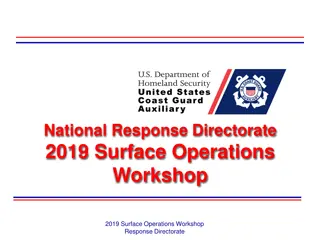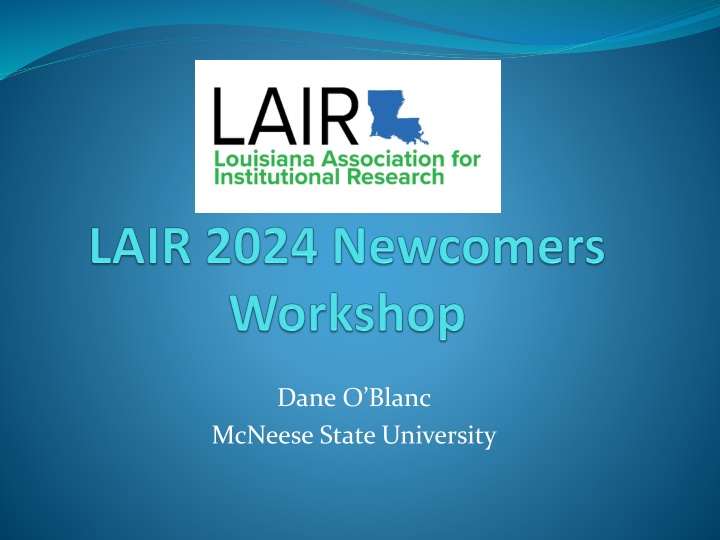
The Role of Institutional Research in Higher Education
Learn about the significance of Institutional Research in higher education institutions, covering its diverse functions, typical office structures, 2021 results, and ethical principles. Discover professional development resources for IR professionals.
Download Presentation

Please find below an Image/Link to download the presentation.
The content on the website is provided AS IS for your information and personal use only. It may not be sold, licensed, or shared on other websites without obtaining consent from the author. If you encounter any issues during the download, it is possible that the publisher has removed the file from their server.
You are allowed to download the files provided on this website for personal or commercial use, subject to the condition that they are used lawfully. All files are the property of their respective owners.
The content on the website is provided AS IS for your information and personal use only. It may not be sold, licensed, or shared on other websites without obtaining consent from the author.
E N D
Presentation Transcript
Dane OBlanc McNeese State University
What is Institutional Research? The term Institutional Research covers a broad spectrum of activities which are engaged in across a wide variety of institutional types and settings. (Lyons, 1976) A lot of things can be considered Institutional Research. What one office might do, another might not. AIR conducted a study and proposed 5 duties and functions. Identify information needs Collect, analyze, interpret, and report data and information Plan and evaluate Serve as stewards of data and information Educate information producers, users, and consumers 1. 2. 3. 4. 5. For more info, see https://www.airweb.org/ir-data-professional-overview/duties-and- functions-of-institutional-research We are the geeks of higher ed
Typical IR Office There is no such thing It can be a 1 person office or a dozen It reports to the President, Provost, Vice President Finance, Vice President Enrollment, Assistant VP, etc. Most common to be somewhere in Academic Affairs Institutional Research, Institutional Research & Assessment, Institutional Research & Planning, Institutional Research & Effectiveness, Budget & Planning, etc. In addition to reporting, may deal with accreditation, student evaluations, assessment, facilities, athletics, conducting surveys, enrollment management, program review, budgeting, others? AIR conducted a National Survey in 2015, 2018 and 2021, see their website for results.
Select 2021 Results Current Division - Academic Affairs 51%; President s Office 21%; IT 5%; Finance/Operations/Business 5%; IR/IE/Planning 5%; Enrollment Management/Admissions 3% Staffing Average of Total Staff 3.5; 39% agreed to the statement Office staffing is adequate to meet institutional expectations. % of office work activities (50thPercentile) Compliance Reporting 20% Information for decision support 19% Non-compliance reporting 14% Institutional Effectiveness 9% Accreditation 9% Assessment 8% Analytics/Business Intelligent 9% Strategic Planning 4%
AIR Statement of Ethical Principles Revised in September 2019 to include emerging topics such as data analytics, big data, and vendor relationships. Provides broad ethical statements to guide professional life. The AIR Ethics website contains actual scenarios submitted by members, addresses which ethics are involved and provides some questions to help guide responses. https://www.airweb.org/ir-data-professional- overview/statement-of-ethical-principles
Professional Development Resources LAIR (https://www.la-air.org/) obviously you know about this one SAIR (www.sair.org) September 28-October 1, Atlanta, GA (let me know if not on the listserv and I will add you) AIR (www.airweb.org) May 20-May 23, Orlando, FL (if you haven t already, sign up for eAIR Newsletter: https://www.airweb.org/resources/publications/eair- newsletter)
LAIR Involvement in SAIR Lisa Lord 2016-2017 Michelle Hall 2008-2009 Kristy Neal 2022-2023 Emily Campbell 2021-2022 Bernie Braun 2009-2010
What do you need to be a good institutional researcher? Humor (sometimes you either laugh or you cry) Familiarity with fundamentals of higher education Technical and analytical skills (research design, stats, Excel, statistical software, survey methodology,) Willingness to learn new skills and acquire new knowledge Flexibility (last minute requests will always happen) Ability to work on multiple projects Ain t too proud to beg A little OCD doesn t hurt
External Reporting Required Reporting Federal Reporting (IPEDS) (https://nces.ed.gov/ipeds) Training: https://www.airweb.org/collaborate-learn/ipeds-training-center BoR Files (https://regents.la.gov/data-publications/) SACSCOC (www.sacscoc.org) Voluntary Reporting Common Data Set (https://commondataset.org/) Faculty Data: CUPAHR, AAUP, Delaware Study Magazines, other surveys (U.S. News & World Report, Princeton Review, etc.) SAM student achievement measures (http://www.studentachievementmeasure.org/) Ad Hoc Reporting to newspapers, individuals, governmental or educational entities Other reporting you might be involved in Athletics (NCAA) Program accreditation Title II (Education) NSF WIA
IPEDS Registration Closes August 28 Register Report Mapping Institutional Characteristics Basic institutional data Fall Closes October 16 Cost I (New) Cost of Attendance Completions Completers submitted by BoR, institutions review and add 2nd major 12 Month Enrollment Winter Closes February 19 Student Financial Aid Cost II (New) Average Net Price Graduation Rates Graduation Rates 200% Admissions Outcome Measures Spring Closes April 16 Fall Enrollment Finance Human Resources Academic Library (Scheduled to be discontinued in 2025-2026)
ERP Systems Enterprise resource planning (ERP) refers to a type of software that organizations use to manage day-to-day business activities such as accounting, procurement, project management, risk management and compliance, and supply chain operations. A higher education ERP system automates aspects of the student life cycle and helps faculty members manage their teaching agendas, along with administrative tasks. Common Higher Ed Modules: HR, Finance, Admissions, Student, Curriculum Management, Alumni, Financial Aid, Advising, Recruiting Systems available: Workday (HR & Finance Southeastern, UNO, Tech, LSU) PeopleSoft (Student Southeastern, UNO) Banner (Nicholls, Northwestern, McNeese, ULL, ULM) Jenzabar Unit4
Factbooks Hard copy, web/electronic, mini , standard, dashboards Provides annual standardized report that a lot of people will use Gains exposure for your office Can make reporting easier, quick guide available at your fingertips What is included depends on the needs of the institution For great examples: http://sair.org/awards/annual-fact-book-and- electronic-document-competition/ BoR Factbook: https://www.laregents.edu/wp- content/uploads/2023/01/Louisiana-Higher-Education-Fact- Book.pdf McNeese Factbook: https://www.mcneese.edu/ire/2023-2024- factbook NSULA Factbook: https://documentproviderviewer.nsula.edu/?id=13 966
Comparison Groups Developing comparison groups can be very political and sensitive Not all comparison groups are peers although they are often referred to as peer groups Types: Competitor Institutions you compete with for students or other resources Aspirational Institutions you aspire to Predetermined Natural e.g. Athletic Conference Traditional based on history Jurisdictional part of same political or legal jurisdiction (UL System) Classification-Based Carnegie or other type of classification Peer similar institutions Have to keep in mind what is the purpose of the group, if possible.
External Sources of Data Integrated Post Secondary Educational Data System (IPEDS) www.nces.ed.gov/ipeds/ National Center for Educational Statistics (NCES) nces.ed.gov/ SREB www.sreb.org National Student Clearinghouse www.studentclearinghouse.org/ Grapevine (state financial support) https://education.illinoisstate.edu/grapevine/ CUPAHR www.cupahr.org WICHE (projections of high school graduates) https://knocking.wiche.edu/ AAUP www.aaup.org/our-work/research/annual-report-economic-status- profession Bureau of Labor Statistics www.bls.gov/data/ Census Bureau www.census.gov/ College Scorecard https://collegescorecard.ed.gov/ NACUBO https://www.nacubo.org/ Delaware Cost Study https://ire.udel.edu/cost/ Educause https://www.educause.edu/research-and- publications/research/analytics-services
Keeping track of data requests Develop a database, can be as simple as an excel file or more complex Develop request forms, either on-line or hard copy If the same type of data is requested, add to a standard report such as factbook Track internal vs. external Track dates and times for submission and completion Track hours required can be used to justify resources Know what everyone in office is working on
Hard earned tips Take a programmer to lunch Check the news headlines daily, might impact the call you are going to get in 5 minutes Put as much as possible on the web, and start training folks to look there first (some will never be trainable and some will take a lot of training, but those who look there first make your life easier) Never assume If you can, when someone asks for data, ask what they are trying to do. You might have better data they are not aware of. If you can t sleep, go over all the acronyms you use, works much better than counting sheep. Still can t sleep, pick up any federal guidelines. Triple and quadruple check your data Know your institution, being able to eyeball data and know if it is within the realm of possibility is invaluable (this will come with time) I don t know is not an acceptable answer by itself, I don t know but will find out is Don t make a statement if you are not sure Don t be surprised if the main campus line routes all manners of calls to you IR folks are friendly, don t be afraid to ask. Most are willing to let you borrow their work, but like to be asked first Sometimes the best way to cope is just repeat Job security, Job security, Job security Know your catalog
That wasnt on my bingo card. Hurricanes Pandemics Network Incidents
Resources AIR Professional Training & Development https://www.airweb.org/collaborate-learn/professional- development-training AIR Statement of Ethical Principles https://www.airweb.org/ir-data-professional- overview/statement-of-ethical-principles
Questions, want to vent, make sure you are not crazy, anything mhall@selu.edu (985) 549-2077 doblanc@mcneese.edu (337) 475-5080

